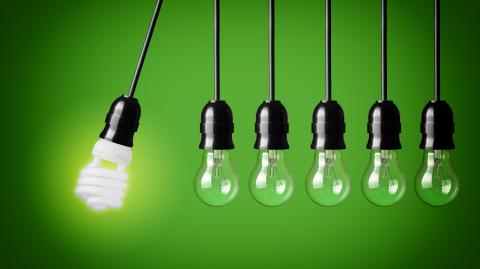European Economic
and Social Committee
EESC #EnergyPoverty conference calls for real action to safeguard vulnerable people's right to access energy
The European Economic and Social Committee (EESC) organised for the second consecutive year a major conference to take stock of the energy poverty situation in the EU Member States, putting forward concrete proposals to tackle this important social problem.
Protecting the most vulnerable but at the same time empowering EU citizens by actively involving them in the energy transition. With these words, European Commissioner for Energy Kadri Simson and EESC President Christa Schweng called for more action from all sides at the hybrid conference Tackling energy poverty at the heart of the ecological and energy transition held at the EESC in Brussels on 21 April 2022.
Energy poverty is a sad reality that we know millions of EU citizens face and that is being made even worse by current events. It is more evident than ever that we should protect those in need, but also empower all people across the Member States through our energy policy. This is also the recipe for a fair transition,
said Ms Simson.
Mentioning that the energy transition was a unique moment to take coordinated action, also in view of the current wave of solidarity and integration in Europe as a reaction to the war in Ukraine, Ms Schweng added: We need a real vision. Measures must be implemented bearing in mind that solidarity with the most vulnerable must remain a priority! Energy poverty reduction cannot be achieved without the active involvement of organised civil society. We must seize opportunities to act, react and impact.
The issue of energy poverty is still with us
Energy poverty is still a big social problem in all EU Member States and all over the world. In recent years, the situation has worsened and, according to latest reports, more than 700 million people in the world, about 10 per cent of the population, live in extreme poverty and have no access to electricity. Across Europe, it is between 50 and 125 million people.
The EU needs to implement a socially fair and just transition towards a climate-neutral European Union by 2050, showing that it is possible to achieve energy and climate objectives while ensuring that nobody is left behind.
To fight energy poverty, Baiba Miltoviča, President of the Section for Transport, Energy, Infrastructure and the Information Society (TEN), pointed out that strong political will was needed to create a coalition between all actors on the ground and at national and European level, highlighting that the EESC was ready to play an active role and bring all stakeholders together.
The way ahead: more funds, local measures and widespread renovation of buildings
The event was organised with the support of the French Presidency of the Council of the European Union and followed up on the EESC's 2021 conference Energy poverty at the crossroads of the European Pillar of Social Rights and the European Green Deal.
Participants included energy poverty campaigner Martha Myers representing Friends of the Earth Europe and the Right to Energy coalition, Miguel Morcillo from the Covenant of Mayors, Clotilde Clark-Foulquier of the European Federation of National Organisations Working with the Homeless (FEANTSA) and university students from Sciences Po Strasbourg.
They agreed on the following key messages:
1) Increased funds are needed, as well as simplified access to EU funding;
2) Decentralised access to energy and local measures are the best means for achieving targeted results, especially for energy-poor households;
3) Large scale renovation of buildings is now an absolute necessity, supporting the lowest income groups;
4) Civil society organisations should play a key role in defining and implementing energy policies;
5) The EESC intends to push for the creation of a strong coalition between actors on the ground and the national and European political levels.
The detailed conclusions will soon be available on the conference website.
Work organisation
Downloads
-
Energy poverty
